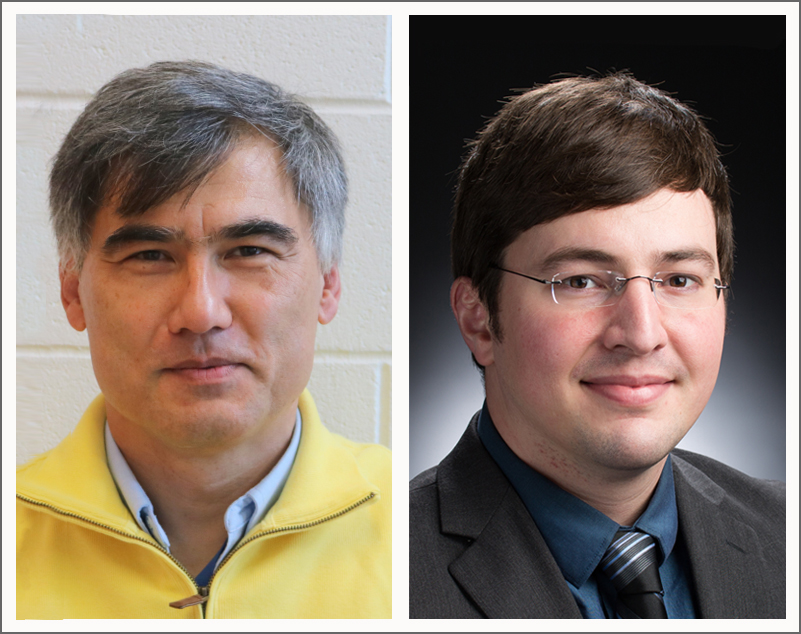Press Release
Michael Presley and Laszlo Kecskes Receive Inaugural HEMI/APL Seed Grant
Michael Presley, of the Johns Hopkins Applied Physics Laboratory (APL) in Laurel, Maryland, and Laszlo Kecskes, of the Hopkins Extreme Materials Institute (HEMI), are the inaugural recipients of the HEMI/APL Seed Grant.
Presley and Kecskes earned the grant for their project, “Application of Thermodynamic Modeling to Spatially Tailor the Microstructure of Additively Manufactured W-based Alloys.” Their goal is to develop a predictive framework to locally tune the microstructure and properties of tungsten-based materials via additive manufacturing. The end result of the project will be broadly applicable to any metal alloy system.
“The idea for the proposal came out of our work to develop new printable tungsten alloys for additive manufacturing,” explained Presley, a senior scientist in APL’s Research and Exploratory Development Department. “Tungsten is very sensitive to crack formation and has an incredibly high melting point, so not many people have studied how tungsten behaves in the liquid state since traditional fabrication methods skip melting altogether.”
“We melt tungsten over and over again as we build up a part, so figuring out new ways to understand those dynamics is critical.”
Presley works primarily in the areas of additive manufacturing, welding and machine learning, and specializes in additive process development, materials qualification and refractory materials.
“I’m honored to receive this award and love that our organizations are putting new mechanisms in place to work together,” he said. “There is so much expertise at HEMI and the Johns Hopkins Whiting School of Engineering. This grant gives us a chance to really tap into and learn from them.”
Kecskes, a HEMI research professor, studies the dynamic behavior of novel material (metals and polymers) systems. His research also includes the creation of materials under extreme processing conditions that lead to unique to meta-stable substructures as a means to modify their nominal behavior. “Dr. Kecskes is one of the experts in traditional tungsten materials, so when we realized he was available to work with at HEMI, we jumped at the opportunity,” Presley said.
APL and HEMI announced the collaborative seed grant program earlier this year. The goal of the program is to provide seed funding to bring together scientists and engineers from APL and HEMI to collaborate on research topics of mutual interest. The grant is funded for $50,000, a joint contribution by the organizations.
“This grant really grew out of information-sharing discussions,” said Morgan Trexler, a HEMI fellow and materials engineer at APL. “We thought that this would be a good way to begin exploring more collaborative opportunities.”
To learn more about the program, visit https://hemi.jhu.edu/hemi-apl-seed-grant.
